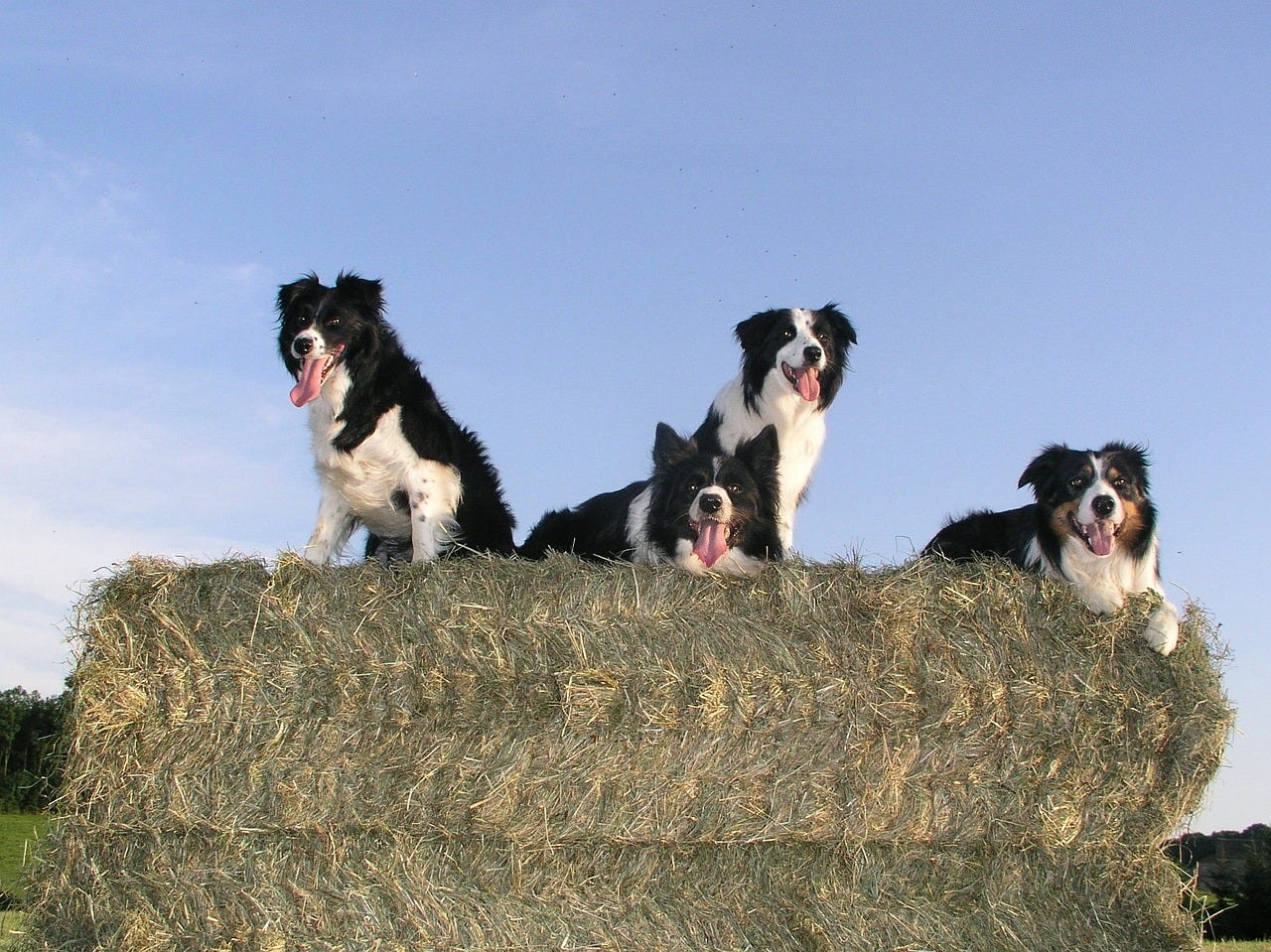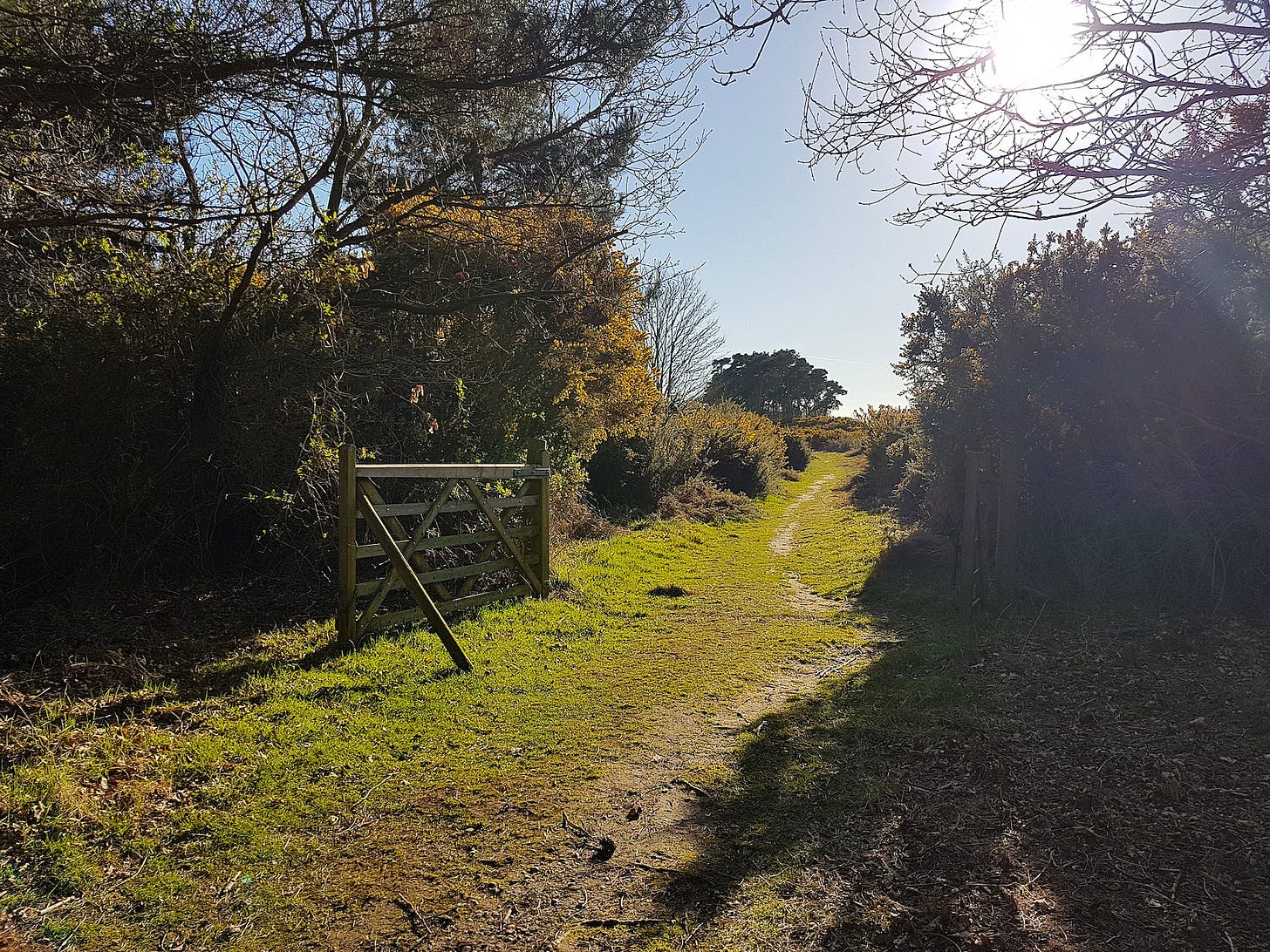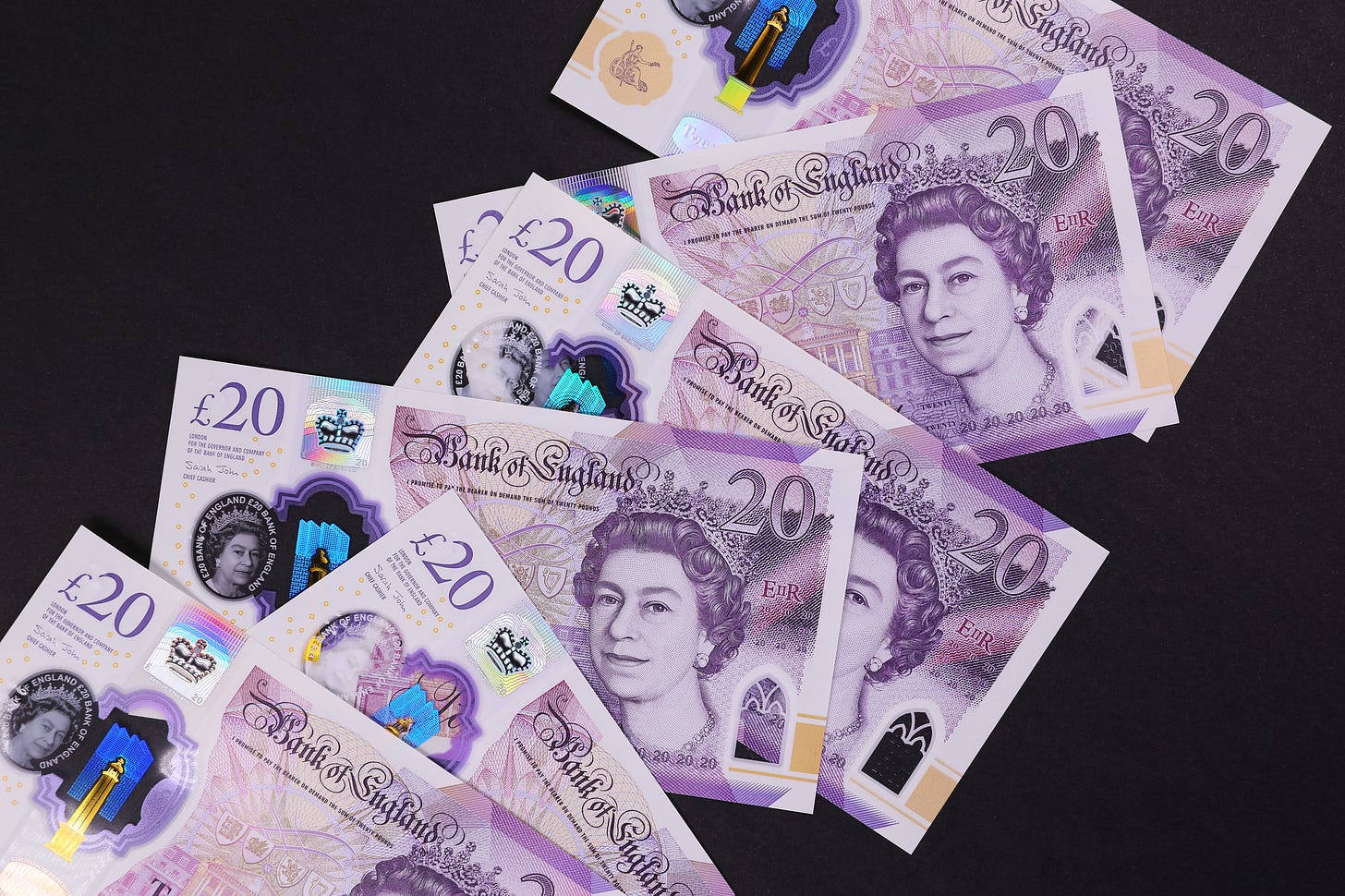Whenever we are offered two choices, the alarm bells should start ringing. There are never only two choices. Binary choice is for computers, not humans. I was reminded of this by a few things lately, but the most allegorical has got to be Sean the Sheepman.
I confess, I am addicted to Sean the Sheepman. Should I even share him here? You see, Sean is an affable and hard-working young Scottish farmer who traverses the bonny, wind-lashed hills of his native land with his trio of beautiful Border Collies. The scenes are glorious. The Highlands are tussocky bears loping through bracken strewn vales, with skies hanging like vaporous auguries overhead. As dawn breaks, Sean’s three black and white Collie dogs race across fields of sedge, grinning their chops off as the breeze rushes through their gleaming fur. Aghh...
Sean shares many of his herding tricks in his YouTube videos. Sometimes he takes one dog out with him into the fields, sometimes two or three. Storm is the cleverest, Echo is the fastest, and Kate the Great is the most experienced. I am of course quite besotted with them all, but I’m afraid I’m not posting a link until the bottom of the article, because I fear that once you’ve entered Sheepmanland, you’ll never return.
What’s all this got to do with binary choices though? Well...we can learn a lot about crowd management from Storm, Echo, and Kate, as these razor-sharp Border Collies wow us with their herding prowess. Together they deal with stubborn ewes, tiny lambs, and belligerent rams, however the crux of the operation works thus: There is an open gate that Sean wants the sheep to move through. The Collies run in an arc around the herd, adopting the stance of a predator. The sheep feel unnerved and start trotting in the opposite direction towards the gate. Job done.

Two choices are offered the sheep: gate or dog. The sheep aren’t particularly disposed to either, but inevitably choose the lesser of two evils (the gate), which is exactly what the farmer wanted all along.
Having worked in education for two decades, I know this strategy well. “Never offer an open choice to a class of children,” we were told. “Always give them limited options.” It was called classroom management, and of course the choice was basically a non-choice. But ever since then, I’ve been watching us adults being corralled (or more often in fact corralling ourselves) in the same way, and wondering why we don’t ask or look for more options. I suppose that’s training for you.
There are so many examples of the binary choice mind trap in action, I could go on all day about it. But this month it’s the move towards or against a cashless society that I was drawn to study.
Cash or card? In the Western world it seems more and more outlets are refusing cash. Off you trot to a cafe. You whip out a fiver to pay, but instead the card machine is thrust under your nose. “Sorry, we don’t take cash,” the barista intones, and suddenly you feel a little cajoled, because cash is in fact the only legal tender (in the UK) at the time of this writing. People don’t like being cajoled into doing things, so all this has caused some kerfuffle of late as people rail against the evils of a cashless society. Banknotes are even making something of a comeback I hear, with folk boycotting the card machine cafes and championing cash as if it were (or had ever been) a mark of liberation. Sigh. Don’t get me wrong, I love that people stand in the path of the Great Machine and offer a bit of resistance. I just wish they’d clue up a little and focus their energy more strategically.
Cash or Card? It’s that binary choice again: On the one hand we have a sinister cashless world with controlled electronic currencies where the government/powers-that-be potentially oversee our spending à la Chinese social credit system. On the other hand, we have the dog-eared old banknotes of the world’s fiat currencies, with the Queen or King’s head on them, or the pyramid and the eye, and all that.
It’s a non-choice though. Cash was never ours any more than electronic currencies would be. Fiat currency isn’t empowered. It’s a promissory note from a bank which they may or may not choose to reimburse. Legally speaking, I think we’re supposed to be able to cash that note in for gold, right? Good luck trying that, my friend. The point is, the banks and the Royal mint have the power over that note, heck they own it! They can turn around and suddenly say it’s no longer of any value if they want (which they probably will at some point in the not too distant future). So to my mind, there’s zero point clutching onto a wad of banknotes as though they’re some magic amulet of freedom. They are not. They never were.
I certainly wouldn’t dismiss money as irrelevant for some measure of liberty, but the harsh truth is that we don’t control it, whether it’s cash, card, or numbers in a bank account. We have bought into someone else’s exchange system. Yet, just because we use a system doesn’t necessarily mean we have to totally rely on it.
Currencies are, and always were, social contracts. We are the ones who decide what has value and what doesn’t, as countless examples of local currency experiments have shown. There are hundreds of independent local currencies in existence all over the world, and at least a dozen different models for alternative currencies, from Time Banks to BlockChain. Some of these work better and create more independence than others. Nevertheless, the fact that (usually small) communities are experimenting so widely with these is telling, because when the day comes that cash disappears, anyone with half a brain will get creative. There will be more than one system functioning at that point: We’ll have the official e currency, which may well be controlled, that we’ll use for official transactions, and then there’ll be a set of unofficial currencies we’ll utilise to navigate round the controls. It seems pretty obvious to me, but hey I’ve spent 20 years in Turkey. With it’s recurring hyper inflation issues, the Turks are pretty adept at switching currencies, or bartering instead.
This brings me to the strangely liberating experience of not actually possessing any money. At one point in my life in Turkey I was almost moneyless. I look back on that time as one of the most enriching of my life, so much so it’s the topic of my next book. So I suppose it’s hard for me to feel frantic about the cash versus card issue, because I’ve experienced first hand that ultimately neither are anywhere near as vital as people believe. 17% of the world is still completely unbanked after all, and using alternative systems of exchange.
These ideas aren’t new. But I’ve noticed in the past years many people seem to have been sucked into various strange and debilitating mindsets where they forget the myriad possibilities available to them. They cower before the Collie dog of a projected future (an illusion that someone else has created), and then scurry back to the sheep fold of a romanticised past. For some reason the drearily conservative 1950s seems to be the paddock of choice today, doesn’t it? As if there were nowhere else to go. Future=bad, Past=good is a binary choice. It’s a robot choice. Yet the future isn’t a predator. It isn’t someone else’s to control. We are the ones who shape it, and there are many more than two options for how it manifests.

Today, with the daffodils and tulips suddenly bursting to life, just like everyone else I’m staring down the barrel of my own future. I notice the way my mind always offers me the same kind of binary choices for my life. Do this or do that? I notice the way I corral myself. It’s as though my mind is filled with fences and a strange shadowy predator that’s pushing me along. It’s only when I stop moving and stare that figure down, that that I see. It’s all Scotch mist, beyond which lie vast open fields and enchanted forests. Talking of which...
Up in the Highlands with Sean the Sheepman, the clouds are sinking into the valleys. Green tufts of spring mottle the slopes as Storm, Echo, and Kate get back to work. Border Collies are ridiculously clever and fast, managing to round up large wandering flocks and move them over the sweeping Scottish hills in minutes. Sean often tells us that the Collies can’t spend too long with the sheep, or the sheep will lose “respect”. This means the flock will realise the dogs aren’t really predators, and no longer be so keen to walk through the farmer’s gate.
Nature being nature, every now and again a sheep will lose respect anyway. Sometimes they’ll kick. Sometimes they’ll run in the opposite direction. Sometimes they’ll simply refuse to budge. Then it’s a test of nerves. In these moments the Collie’s full attention is on that sheep, trying to psyche it out. Usually the Collie wins by sheer force of determination, but it’s an effort. I always watch these battles thinking: It’s a good job more of the sheep don’t lose respect at the same time, eh? It would be complete chaos! But Storm, Echo, and Kate don’t worry about that. Border Collies don’t see themselves as equal to sheep, you see. For the dogs, the sheep are a game, and they are expert players.
Finally, here’s Sean the Sheepman. You’re welcome.








I recently found Sean the Sheepman and his amazing border collies. It is amazing! Your essay gave me so much to think about. I've been keen on working dogs since I adopted a giant Anatolian Sheherd mix. We named her Mattie, 7 years old, 120 lbs. She is unlike any dog I've ever had. I'm in love.